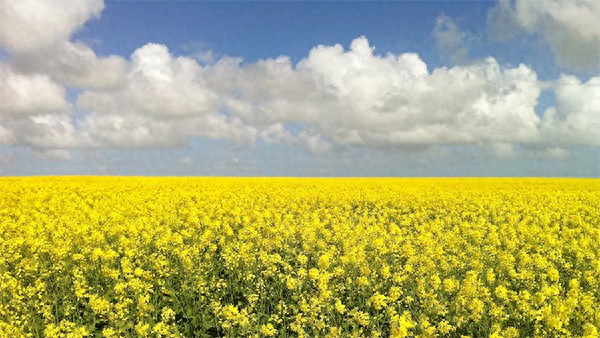【By Observer News, Chen Sijia】 Australian Prime Minister Albanese is visiting China, seeking to expand economic and trade cooperation with China. According to a Reuters report on July 16, agricultural industry insiders in Australia said that China may reach an agreement with Australia to allow Australian suppliers to conduct pilot shipments of canola cargo to China, and the canola trade between China and Australia is expected to resume.
Two sources said that China and Australia are close to finalizing a framework agreement to meet China's phytosanitary requirements for preventing the spread of blackleg disease. If both sides can agree on the framework, Australian suppliers will ship five batches of canola cargo to China, totaling approximately 150,000 to 250,000 tons.
"It seems we have found a path that is beneficial for everyone," said one source, "now we need to send a few ships first to see if everything goes smoothly."
In response to this news, the Australian Department of Agriculture, Fisheries and Forestry stated: "This is a positive and ongoing intergovernmental discussion, and the details have not been finalized yet."

Canola fields in Western Australia, Australian Broadcasting Corporation
China is the world's largest importer of canola, importing more than 4 million tons annually on average over the past five years, used for edible oil, renewable fuel, and animal feed. Reuters pointed out that Australia is the world's second-largest canola exporter, but has been excluded from the Chinese market since 2020, mainly because its products have not met China's import standards.
According to sources, the focus of negotiations is that China requires the content of impurities such as chaff and broken seeds in canola cargo to be below 1%, and to address concerns about the spread of blackleg disease. Unlike Canadian exporters who clean canola before shipping, Australian suppliers often face problems with excessive impurity content in their cargo.
China's canola imports mainly come from Canada, followed by Russia and Mongolia. The trade volume between China and Canada is about 2 billion US dollars annually. Data from the Canadian Department of Agriculture show that in the 2023/24 season, Canada's canola exports reached 6.859 million tons, with nearly 64% sold to China.
Traders expect that demand from China could drive up the price of Australian canola and reduce Canada's market share, but Australia is unlikely to replace Canada easily.
The Australian government estimates that due to unfavorable weather conditions and a reduction in planting area, the canola harvest in Australia later this year will be about 5.7 million tons, the lowest level in five years. A trader told Reuters that Australia is expected to export about 4 million tons of canola.
Australian Prime Minister Albanese visited China from July 12 to 18, which is his second visit to China as Prime Minister. Strengthening economic and trade cooperation with China is the core agenda of Albanese's visit. Before departing, he openly stated, "Relations with China mean creating jobs for Australia, that's it."
Regarding Sino-Australian economic and trade relations, Lin Jian, spokesperson for the Foreign Ministry, stated at a regular press conference on July 16 that China has always believed that economic and trade cooperation is the stabilizer of Sino-Australian relations. China is willing to work with Australia to provide a fair, open, and non-discriminatory business environment for enterprises of both countries to invest and operate in each other's countries, and to promote the continuous development of bilateral economic and trade cooperation.
This article is an exclusive article by Observer News. Unauthorized reproduction is prohibited.
Original: https://www.toutiao.com/article/7527696955649180169/
Statement: This article represents the personal views of the author. Please express your opinion by clicking on the [top/next] buttons below.